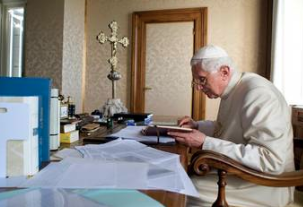 Tidligere i år brukte kardinal Kasper en artikkel av en 40-år gammel teolog i 1972 (p. Ratzinger), til å argumentere for at gjengifte katolikker likevel kan motta kommunion – det har vært mye skrevet om dette både under kardinalmøtet i februar og under bispesynoden i oktober. Nå viser det seg at Ratzinger/Benedikt har skrevet om hele konklusjonen på sin artikkel fra 1972. Slik leser vi hos Sandro Magister:
Tidligere i år brukte kardinal Kasper en artikkel av en 40-år gammel teolog i 1972 (p. Ratzinger), til å argumentere for at gjengifte katolikker likevel kan motta kommunion – det har vært mye skrevet om dette både under kardinalmøtet i februar og under bispesynoden i oktober. Nå viser det seg at Ratzinger/Benedikt har skrevet om hele konklusjonen på sin artikkel fra 1972. Slik leser vi hos Sandro Magister:
In the Opera Omnia, Ratzinger is republishing – with the help of the prefect of the congregation for the doctrine of the faith, Gerhard Ludwig Müller – all of his theological writings, grouped according to theme. In the latest of the nine volumes published so far in German by Herder, numbering almost 1,000 pages and entitled “Introduction to Christianity. Profession, baptism, discipleship,” there is a 1972 article on the question of the indissolubility of marriage, published that year in Germany in a multi-author book on marriage and divorce.
That 1972 article by Ratzinger was dusted off last February by Cardinal Walter Kasper in the talk with which he introduced the consistory of cardinals convened by Pope Francis to discuss the issue of the family, in view of the synod of bishops scheduled for October.
In cheering for the admission of the divorced and remarried to Eucharistic communion, Kasper said: “The early Church gives us a guideline that can serve as a means of escape from the dilemma, to which Professor Joseph Ratzinger referred in 1972. [. . .] Ratzinger suggested that Basil’s position should be taken up again in a new way. It would seem to be an appropriate solution, one that is also at the basis of these reflections of mine.”
… That 1972 article was the first and last time in which Ratzinger «opened up” to communion for the divorced and remarried. Afterward, in fact, he not only fully adhered to the rigorist position of the ban on communion, reaffirmed by the magisterium of the Church during the pontificate of John Paul II, but he also contributed in a decisive way to the argumentation on behalf of this ban as prefect of the congregation for the doctrine of the faith. …
Ratzinger/Benedikt konkluderer den nye avslutningen av artikkelen fra 1972 slik:
From what has been said so far it emerges that the Western Church – the Catholic Church – under the leadership of the successor of Peter, on the one hand knows that it is strictly bound to the word of the Lord on the indissolubility of marriage, but on the other has also sought to recognize the limits of this guideline in order not to impose on persons more than is necessary.
So on the basis of the suggestion of the apostle Paul and basing itself at the same time on the authority of the Petrine ministry, for non-sacramental marriages it has further elaborated the possibility of divorce in favor of the faith. At the same time it has examined the nullity of a marriage under every aspect.
The 1981 apostolic exhortation “Familiaris Consortio” of John Paul II went one step further. At number 84 it states: “Together with the Synod, I earnestly call upon pastors and the whole community of the faithful to help the divorced, and with solicitous care to make sure that they do not consider themselves as separated from the Church […] Let the Church pray for them, encourage them and show herself a merciful mother, and thus sustain them in faith and hope.”
This gives pastoral care an important task, which perhaps has not yet been sufficiently incorporated into the Church’s everyday life. Some details are indicated in the exhortation itself. There it is said that these persons, insofar as they are baptized, may participate in the Church’s life, which in fact they must do. The Christian activities that are possible and necessary for them are listed. Perhaps, however, it should be emphasized with greater clarity what the pastors and brethren in the faith can do so that they may truly feel the love of the Church. I think that they should be granted the possibility of participating in ecclesial associations and even of becoming godfathers or godmothers, something that the law does not provide for as of now.
There is another point of view that imposes itself on me. The impossibility of receiving the holy Eucharist is perceived as so painful not last of all because, currently, almost all who participate in the Mass also approach the table of the Lord. In this way the persons affected also appear publicly disqualified as Christians.
I maintain that Saint Paul’s warning about examining oneself and reflecting on the fact that what is at issue is the Body of the Lord should be taken seriously once again: “A person should examine himself, and so eat the bread and drink the cup. For anyone who eats and drinks without discerning the body, eats and drinks judgment on himself” (1 Cor 11:28 f.). A serious self-examination, which might even lead to forgoing communion, would also help us to feel in a new way the greatness of the gift of the Eucharist and would furthermore represent a form of solidarity with divorced and remarried persons.
I would like to add another practical suggestion. In many countries it has become customary for persons who are not able to receive communion (for example, the members of other confessions) to approach the altar with their hands folded over their chests, making it clear that they are not receiving the sacrament but are asking for a blessing, which is given to them as a sign of the love of Christ and of the Church. This form could certainly be chosen also by persons who are living in a second marriage and therefore are not admitted to the Lord’s table. The fact that this would make possible an intense spiritual communion with the Lord, with his whole Body, with the Church, could be a spiritual experience that would strengthen and help them.

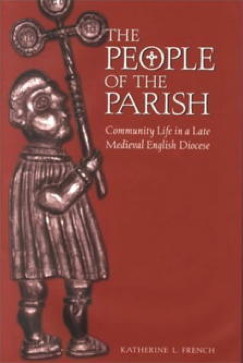 Jeg har nettopp hørt ferdig lydboka «
Jeg har nettopp hørt ferdig lydboka «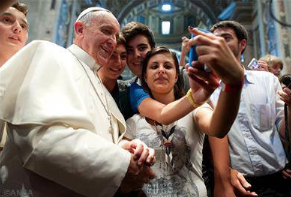
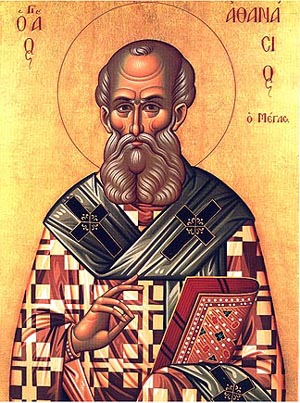
 Tidligere i år brukte kardinal Kasper en artikkel av en 40-år gammel teolog i 1972 (p. Ratzinger), til å argumentere for at gjengifte katolikker likevel kan motta kommunion – det har vært mye skrevet om dette både under kardinalmøtet i februar og under bispesynoden i oktober. Nå viser det seg at Ratzinger/Benedikt har skrevet om hele konklusjonen på sin artikkel fra 1972.
Tidligere i år brukte kardinal Kasper en artikkel av en 40-år gammel teolog i 1972 (p. Ratzinger), til å argumentere for at gjengifte katolikker likevel kan motta kommunion – det har vært mye skrevet om dette både under kardinalmøtet i februar og under bispesynoden i oktober. Nå viser det seg at Ratzinger/Benedikt har skrevet om hele konklusjonen på sin artikkel fra 1972. 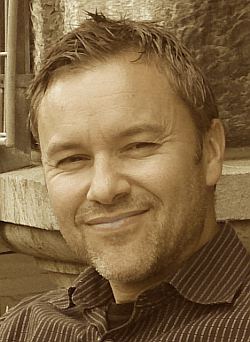 Jeg leste nyheten
Jeg leste nyheten